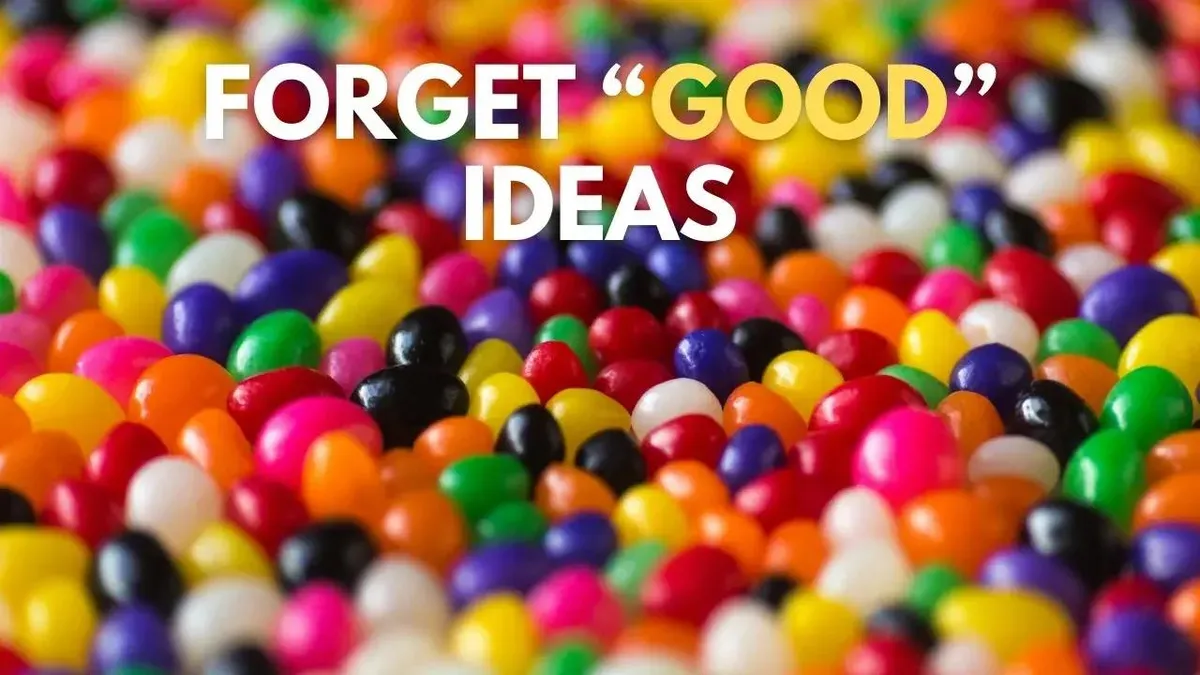How Impostor Syndrome Stops Talented Professionals from Taking the Lead
You feel like a fraud when considering a bigger role, despite your success. That's impostor syndrome. Learn why it targets high-achievers and how to act.
Read ArticleBy Art Harrison • June 4, 2025
The endless search for the "perfect idea" is a trap. Success doesn't come from the quality of your initial idea, but from what you do with it.

I can't stop thinking about jelly beans. Not because I like them, but because the idea of them is stuck in my head. Every single one could be a good flavor or a terrible one, and you won't know until you bite into it.
Isn't that what searching for an idea feels like? We're shaking this endless jar of possibilities, waiting for the "perfect" one to rise to the top. But it never does. And suddenly you're years older and still wondering if you picked the wrong color.
It's exhausting, this obsession with finding the perfect idea. Like there's some magical, glowing idea out there that will solve all your problems if you just think about it long enough.
Spoiler: it doesn't exist.
There's no good idea. There's no bad idea. There's just the one you pick up, act on, and decide to stick with.
The people who succeed aren't the ones who have better ideas. They're the ones who actually do something with them. But we don't like that answer. It's too much work. We want the shortcut, the easy win. And when we can't find it, we just sit there, shaking the jar. This endless search is a sophisticated form of analysis paralysis.
It’s not the idea that matters. It’s how well aligned it is to you—your motivations, your skills, and who you are—that will ultimately determine whether it can succeed. You need to know what you want out of it, because that will drive how hard you'll push and how you'll define success. This process of self-discovery is a key part of Overcoming Change Anxiety and committing to a new path.
Instead of searching for a "good" idea, use this framework to find an idea that's good for you.
The truth is, we put too much pressure on the idea itself. Good ideas don't guarantee success any more than bad ideas guarantee failure. The idea isn't the point. It's you. It's what you want, what you're willing to put into it, and whether you have the guts to follow through when it gets hard. If you're still waiting for a sign, it's never coming. Stop shaking the jar and take a bite.
---
The 6-week FSTEP program helps you move from endless planning to confident action, regardless of how "good" your initial idea is.
Ready to test your idea? Start with our free 5-Day Action Challenge.
Stop planning and start building. Take the first step toward turning your ideas into reality.